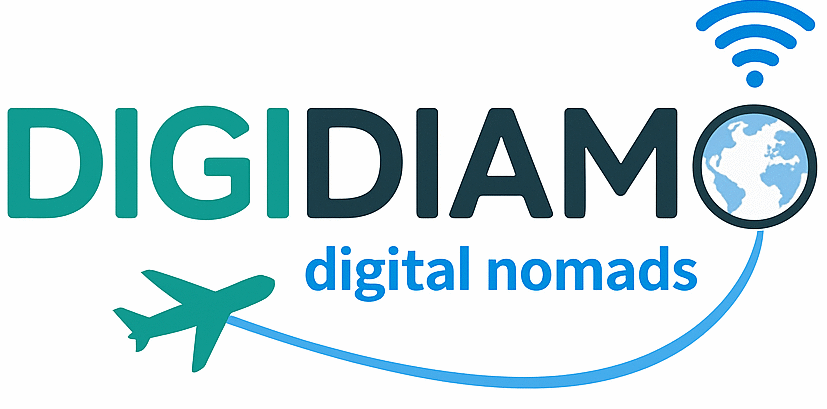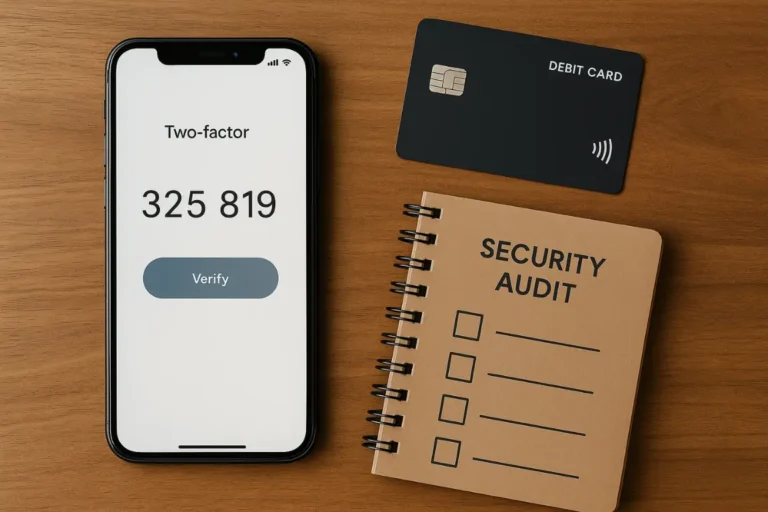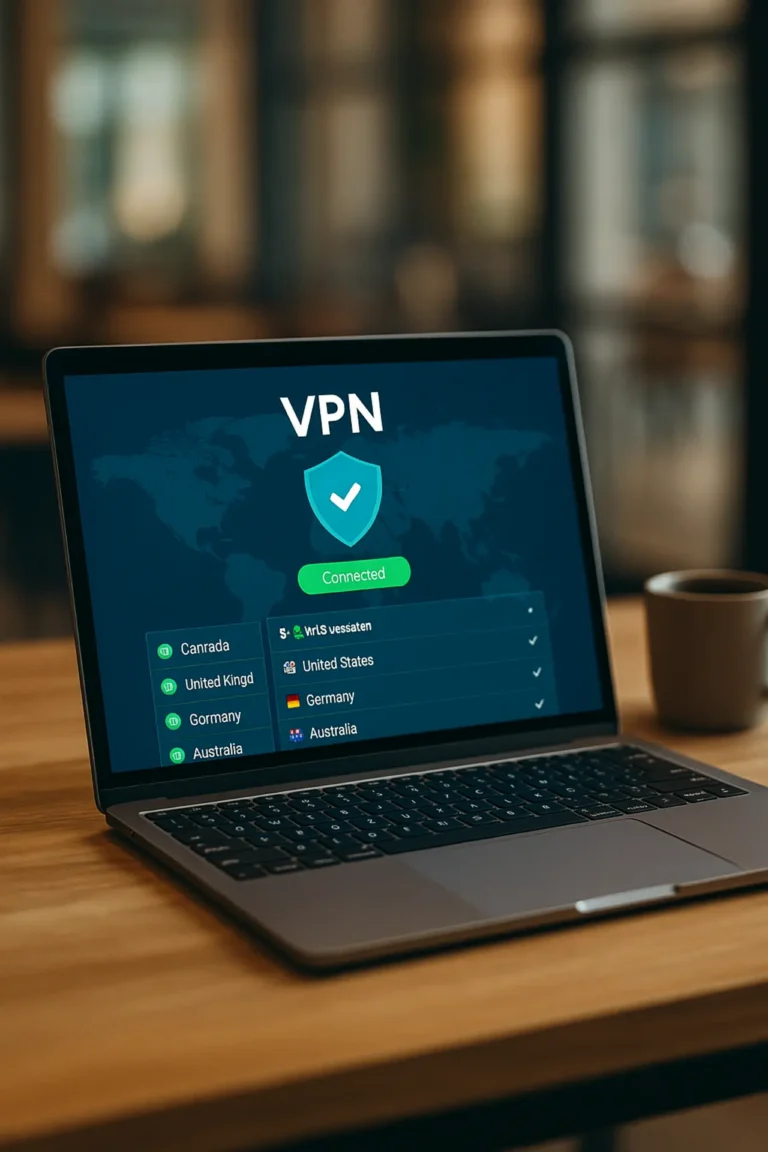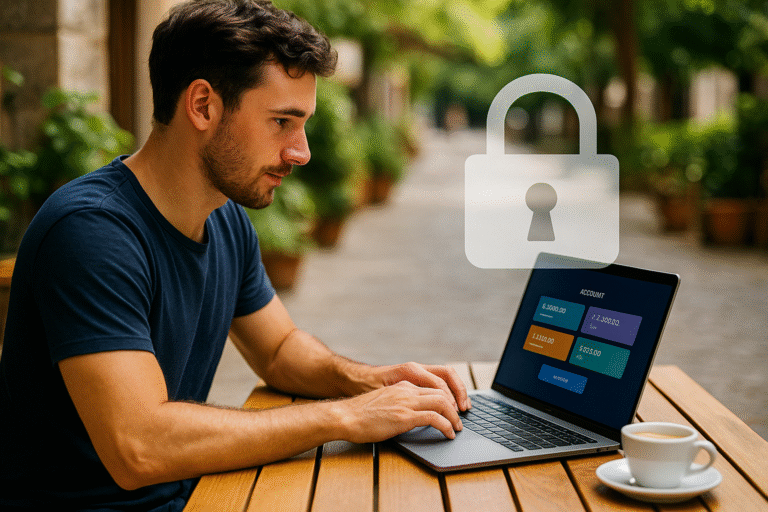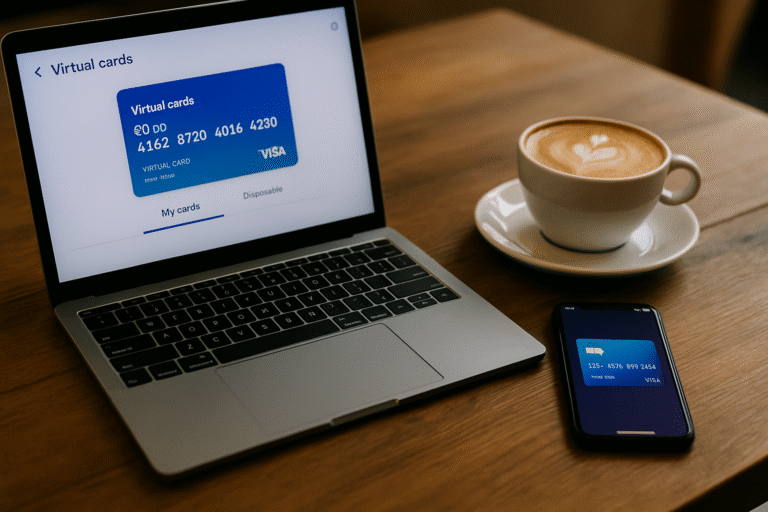Best VPN for travel: stay safe anywhere
Travel has taught me many things. From crowded airports in Asia to late-night cafés in Europe, I learned that internet access is as vital as a passport. For digital nomads, staying online is not a luxury but a way of life. Whether it’s sending client updates, handling money transfers, or streaming a show after a long day, the internet connects us to work and comfort. But with that comes risks. Public Wi-Fi is often unsecured, regional restrictions block services, and prices for flights or hotels can change depending on your location. That’s where a VPN makes all the difference. If you’re curious about the bigger picture, the complete guide on VPNs for digital nomads dives deeper into the topic.
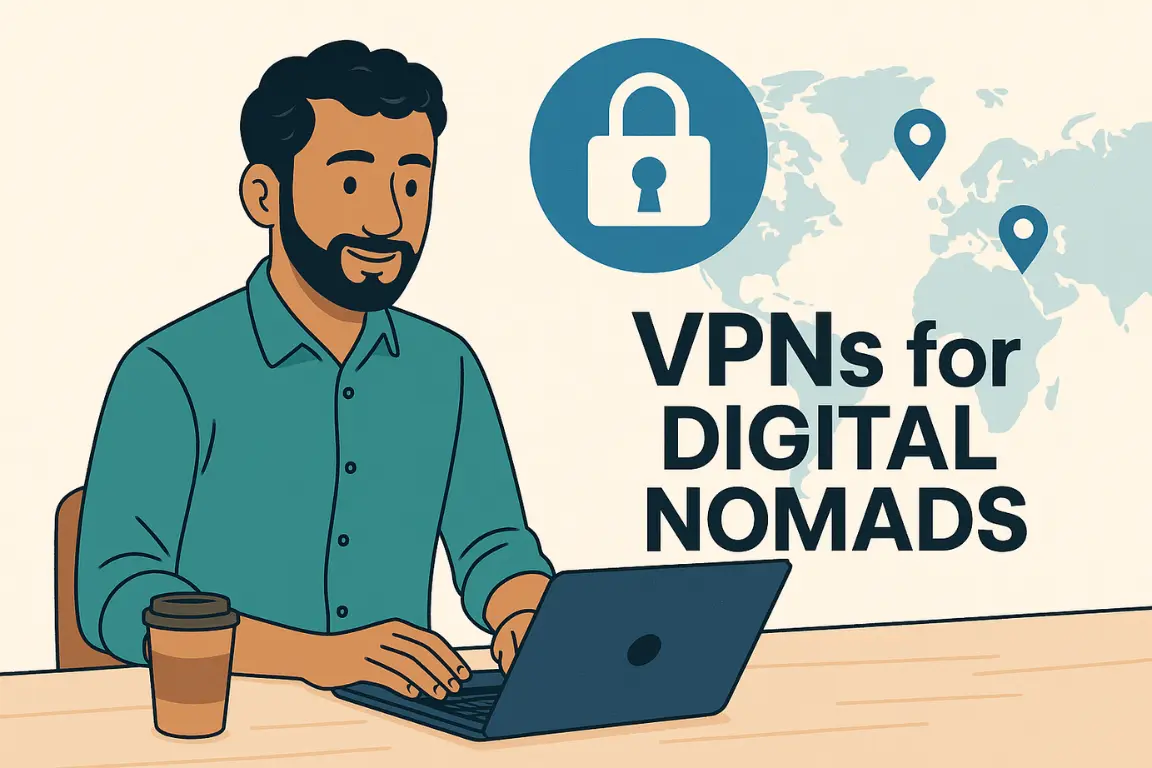
Why travelers need a VPN
When you move from one country to another, your internet experience changes. Websites that worked at home might suddenly be blocked. Your bank could lock you out because your login came from a new location. A VPN helps by creating a secure tunnel between you and the internet. It hides your real location and encrypts your connection. For nomads, that means safety, consistency, and access.
The main reasons travelers use VPNs are:
- Security on public Wi-Fi: Airports, hotels, and coffee shops are convenient but rarely secure. Hackers can set up fake hotspots to steal data.
- Access to services: Streaming platforms, online banking, and even booking sites may be limited based on your location.
- Better deals: Flight and hotel sites sometimes display different prices depending on where you search from. A VPN can level the playing field.
Key features for travelers
Not every VPN is the same. Some are slow, others keep logs of your activity. Choosing the right one matters. For travel, I focus on four key features:
- Speed and stability: No one wants buffering during a meeting or a movie night.
- Server locations: The more countries a VPN covers, the more flexible you are when changing your virtual location.
- No-logs policy: Your data should remain private.
- Ease of use: A good VPN app should be simple to activate on the go.
Popular VPN choices for travelers
After trying several services over the years, I narrowed down the ones that balance speed, privacy, and price.
| VPN Service | Best For | Server Coverage | Price Range (per month) | Notes for Travelers |
|---|---|---|---|---|
| NordVPN | Strong all-around choice | 60+ countries | $3–$5 | Fast, reliable, good for streaming |
| Surfshark | Budget-friendly | 100+ countries | $2–$4 | Unlimited devices on one plan |
| ExpressVPN | Speed and security | 105 countries | $7–$9 | Great speed but higher price |
| AtlasVPN | Simplicity and value | 40+ countries | $2–$4 | User-friendly for quick setup |
I often recommend Surfshark to beginners because of its unlimited devices feature. For those who travel as couples or teams, it’s practical. NordVPN is another solid option, especially for heavy streaming.
How a VPN helps with flights and bookings
One of the lesser-known benefits of a VPN is finding better travel deals. Airlines and booking sites sometimes adjust prices based on your location or browsing history. By switching to a server in another country, you may see lower prices for the same ticket. I once compared a flight from Bangkok to Paris: from Thailand, it was $680. By connecting through a server in France, the price dropped to $590. The difference covered a week of coworking space.
To make this work:
- Clear cookies before searching
- Try different server locations
- Compare results before booking
It doesn’t always guarantee a lower price, but it’s worth testing.
Using a VPN for streaming abroad
After a long day of work and travel, relaxing with a favorite series feels like home. The problem is that platforms like Netflix, Hulu, or BBC iPlayer change their catalogs based on where you are. A VPN helps by letting you connect as if you were back home. This way, you don’t miss shows or live sports while moving around.
But note: not every VPN bypasses streaming restrictions. Providers like ExpressVPN and NordVPN are usually more reliable for this. Free VPNs often fail here and can even expose your data.
Banking and remote work platforms
Accessing bank accounts while abroad can be stressful. Many banks flag foreign logins as suspicious. By connecting through a VPN to a server in your home country, you can reduce the chances of being locked out.
For work platforms like Slack, Trello, or Zoom, a VPN also secures your conversations and file sharing. While it won’t improve call quality, it adds an extra layer of safety.
Free vs paid VPNs
Travelers often ask if free VPNs are enough. In my experience, free VPNs come with limits: fewer servers, slower speeds, and in some cases, questionable data policies. Paid VPNs are inexpensive, especially when you commit to a yearly plan. Spending the price of a coffee each month for secure internet is a wise trade.
Tips for choosing the right VPN as a traveler
- Test the service before committing to a long plan. Most providers offer a 30-day money-back guarantee.
- Consider if you need unlimited devices, especially if you use both a laptop and a phone.
- Look at customer support availability. Problems often happen during odd hours.
Conclusion
As a traveler and digital nomad, I’ve learned that a VPN is more than a tool. It’s peace of mind when logging into a bank account from a hostel, flexibility when booking flights, and comfort when streaming shows from home. Security and freedom are at the heart of the lifestyle, and a VPN supports both.
If you want to dive deeper into the features that matter most for nomads, discover the essential VPN features digital nomads should look for.
